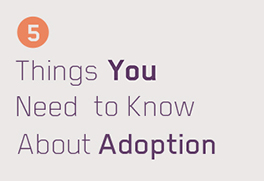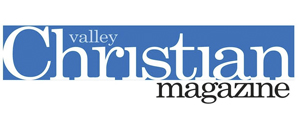breaking news
5 Things You Need to Know About Adoption
November 11th, 2013 | by valleychristian
 1
1
 When most people reference the changing of the family structure, it’s usually a negative connotation—signifying the disintegration of the traditional family. But there’s another force at work changing the family make–up that is as positive as it is powerful, and Christians are among the most likely groups to address this cause.It’s called the adoption movement, but then again, it’s nothing new. Christians have long understood loving the orphan to be part of the mandate of following Jesus.
When most people reference the changing of the family structure, it’s usually a negative connotation—signifying the disintegration of the traditional family. But there’s another force at work changing the family make–up that is as positive as it is powerful, and Christians are among the most likely groups to address this cause.It’s called the adoption movement, but then again, it’s nothing new. Christians have long understood loving the orphan to be part of the mandate of following Jesus.
To commemorate National Adoption Awareness Month, Barna Group presents five things you should know about adoption—what Jedd Medefind, author of the forthcoming Barna FRAMEBecoming Home (releasing January 2014) calls one of the most important ways Christians can demonstrate their love for God to a skeptical culture.
1) Today, there are more than 150 million orphans worldwide.
An orphan is defined as a child with at least one deceased parent, and there are 150 million in the world today. There are also 18 million “double orphans,” those who’ve lost both parents, in need of a home. That’s enough to fill a Super Bowl stadium—not just once, but 180 times.
2) While one–quarter of all adults say they have seriously considered adoption, only 2% have actually done so.
Adoption serves one of the world’s greatest needs, but while it’s deeply meaningful, it’s not always easy, for many reasons. And the gap between those considering adoption and those who go actually adopt reflects the many challenges that crop up to prevent needy children from finding homes. Adoption expenses are certainly a factor, but there’s also the emotional toll of the adoption process, the risk factors of behavioral or health issues and more that may deter prospective parents from following through on their inclination to adopt.
3) Practicing Christians are more than twice as likely to adopt than the general population.
While Christians have built a reputation for many of the things they are against, adoption and foster care are emerging as a cause they are for. While only 2% of all Americans have adopted, this rises to 5% among practicing Christians. Practicing Christians are much more likely than others to have seriously considered adoption—38% of practicing Christians say they have, compared to 26% of all adults.
4) The global weight of adoption efforts is carried by just 2% of Americans.
As some of the most privileged people in the world, it’s no surprise that Americans are leading adoption efforts internationally. But when this is put into statistical perspective, this disproportion becomes far more striking: Since American adoptions comprise nearly half of all adoptions worldwide, this means the global weight of adoption efforts rests on the shoulders of the 2% of American adoptive parents.
5) The typical adoptive family is a multi–ethnic one.
The majority of adoptive parents are non–Hispanic white adults (73%), yet non–Hispanic white adopted children are actually the minority (37%). This results in not only a multi–ethnic family portrait, but increasingly multi–ethnic churches as well. This trend may pave the way for renewed cross–ethnic hospitality and reconciliation within today’s Christian community, which remains one of the most ethnically divided parts of U.S. society.

Comment on this research and follow our work:
Twitter: @davidkinnaman | @barnagroup
Facebook: Barna Group
ABOUT THE RESEARCH
This article is based on research as conducted from July 29, 2013 through August 1, 2013, in which 1,000 adults were surveyed online. The survey sample error is +/- 3.1 percentage points at the 95% confidence level.
ABOUT BARNA GROUP
Barna Group (which includes its research division, the Barna Research Group) is a private, non–partisan, for–profit organization under the umbrella of the Issachar Companies. Located in Ventura, California, Barna Group has been conducting and analyzing primary research to understand cultural trends related to values, beliefs, attitudes and behaviors since 1984.
If you would like to receive free e–mail notification of the release of each update on the latest research findings from Barna Group, you may subscribe to this free service at the Barna website (www.barna.org). Additional research–based resources are also available through this website.
© Barna Group, 2013

 When most people reference the changing of the family structure, it’s usually a negative connotation—signifying the disintegration of the traditional family. But there’s another force at work changing the family make–up that is as positive as it is powerful, and Christians are among the most likely groups to address this cause.It’s called the adoption movement, but then again, it’s nothing new. Christians have long understood loving the orphan to be part of the mandate of following Jesus.
When most people reference the changing of the family structure, it’s usually a negative connotation—signifying the disintegration of the traditional family. But there’s another force at work changing the family make–up that is as positive as it is powerful, and Christians are among the most likely groups to address this cause.It’s called the adoption movement, but then again, it’s nothing new. Christians have long understood loving the orphan to be part of the mandate of following Jesus.
To commemorate National Adoption Awareness Month, Barna Group presents five things you should know about adoption—what Jedd Medefind, author of the forthcoming Barna FRAMEBecoming Home (releasing January 2014) calls one of the most important ways Christians can demonstrate their love for God to a skeptical culture.
1) Today, there are more than 150 million orphans worldwide.
An orphan is defined as a child with at least one deceased parent, and there are 150 million in the world today. There are also 18 million “double orphans,” those who’ve lost both parents, in need of a home. That’s enough to fill a Super Bowl stadium—not just once, but 180 times.
2) While one–quarter of all adults say they have seriously considered adoption, only 2% have actually done so.
Adoption serves one of the world’s greatest needs, but while it’s deeply meaningful, it’s not always easy, for many reasons. And the gap between those considering adoption and those who go actually adopt reflects the many challenges that crop up to prevent needy children from finding homes. Adoption expenses are certainly a factor, but there’s also the emotional toll of the adoption process, the risk factors of behavioral or health issues and more that may deter prospective parents from following through on their inclination to adopt.
3) Practicing Christians are more than twice as likely to adopt than the general population.
While Christians have built a reputation for many of the things they are against, adoption and foster care are emerging as a cause they are for. While only 2% of all Americans have adopted, this rises to 5% among practicing Christians. Practicing Christians are much more likely than others to have seriously considered adoption—38% of practicing Christians say they have, compared to 26% of all adults.
4) The global weight of adoption efforts is carried by just 2% of Americans.
As some of the most privileged people in the world, it’s no surprise that Americans are leading adoption efforts internationally. But when this is put into statistical perspective, this disproportion becomes far more striking: Since American adoptions comprise nearly half of all adoptions worldwide, this means the global weight of adoption efforts rests on the shoulders of the 2% of American adoptive parents.
5) The typical adoptive family is a multi–ethnic one.
The majority of adoptive parents are non–Hispanic white adults (73%), yet non–Hispanic white adopted children are actually the minority (37%). This results in not only a multi–ethnic family portrait, but increasingly multi–ethnic churches as well. This trend may pave the way for renewed cross–ethnic hospitality and reconciliation within today’s Christian community, which remains one of the most ethnically divided parts of U.S. society.

Comment on this research and follow our work:
Twitter: @davidkinnaman | @barnagroup
Facebook: Barna Group
ABOUT THE RESEARCH
This article is based on research as conducted from July 29, 2013 through August 1, 2013, in which 1,000 adults were surveyed online. The survey sample error is +/- 3.1 percentage points at the 95% confidence level.
ABOUT BARNA GROUP
Barna Group (which includes its research division, the Barna Research Group) is a private, non–partisan, for–profit organization under the umbrella of the Issachar Companies. Located in Ventura, California, Barna Group has been conducting and analyzing primary research to understand cultural trends related to values, beliefs, attitudes and behaviors since 1984.
If you would like to receive free e–mail notification of the release of each update on the latest research findings from Barna Group, you may subscribe to this free service at the Barna website (www.barna.org). Additional research–based resources are also available through this website.
© Barna Group, 2013






I appreciate the great work placed into this website.